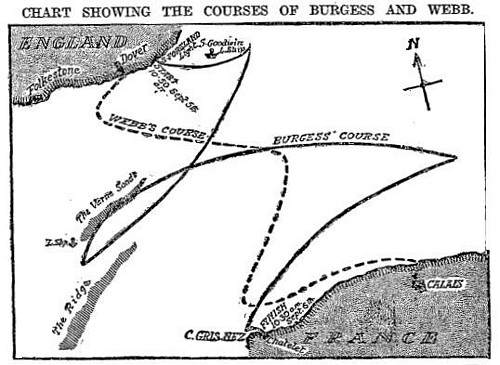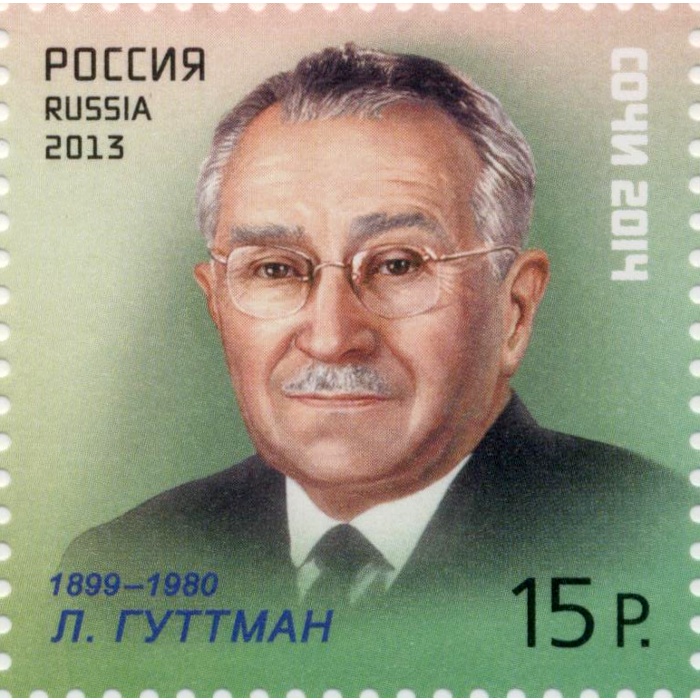|
Shusaku Sugiuchi
is a Paralympic swimmer from Japan competing mainly in category S13 events. Shusaku was a member of the Japanese swimming team at the 2004 Summer Paralympics he competed in a total of six events. He won bronze as part of the Japanese freestyle team and finished fourth as part of the medley team. He also swam in the 50m freestyle, 100m freestyle, failing to make the final in either. He finished eighth in the 100m butterfly and fifth in the 100m breaststroke. References External links * Year of birth missing (living people) Living people Japanese male breaststroke swimmers Japanese male butterfly swimmers Japanese male freestyle swimmers Paralympic swimmers for Japan Paralympic bronze medalists for Japan Paralympic medalists in swimming Swimmers at the 2004 Summer Paralympics Medalists at the 2004 Summer Paralympics S13-classified para swimmers 21st-century Japanese sportsmen {{Japan-Paralympic-medalist-stub ... [...More Info...] [...Related Items...] OR: [Wikipedia] [Google] [Baidu] |
Swimming (sport)
Swimming is an individual or team Racing, racing sport that requires the use of one's entire body to move through water. The sport takes place in Swimming pool, pools or open water (e.g., in a sea or lake). Competitive swimming is one of the most popular Olympic sports, with varied distance events in Butterfly stroke, butterfly, backstroke, breaststroke, Freestyle swimming, freestyle, and individual medley. In addition to these individual events, four swimmers can take part in either a freestyle or medley Relay race, relay. A medley relay consists of four swimmers who will each swim a different stroke, ordered as backstroke, breaststroke, butterfly and freestyle. Swimming each stroke requires a set of specific techniques; in competition, there are distinct regulations concerning the acceptable form for each individual stroke. There are also regulations on what types of swimsuits, caps, jewelry and injury tape that are allowed at competitions. There are many health benefits to ... [...More Info...] [...Related Items...] OR: [Wikipedia] [Google] [Baidu] |
Japanese Male Butterfly Swimmers
Japanese may refer to: * Something from or related to Japan, an island country in East Asia * Japanese language, spoken mainly in Japan * Japanese people, the ethnic group that identifies with Japan through ancestry or culture ** Japanese diaspora, Japanese emigrants and their descendants around the world * Japanese citizens, nationals of Japan under Japanese nationality law ** Foreign-born Japanese, naturalized citizens of Japan * Japanese writing system, consisting of kanji and kana * Japanese cuisine, the food and food culture of Japan See also * List of Japanese people * * Japonica (other) * Japanese studies , sometimes known as Japanology in Europe, is a sub-field of area studies or East Asian studies involved in social sciences and humanities research on Japan. It incorporates fields such as the study of Japanese language, history, culture, litera ... {{disambiguation Language and nationality disambiguation pages ... [...More Info...] [...Related Items...] OR: [Wikipedia] [Google] [Baidu] |
Medalists At The 2004 Summer Paralympics
A medal or medallion is a small portable artistic object, a thin disc, normally of metal, carrying a design, usually on both sides. They typically have a commemorative purpose of some kind, and many are presented as awards. They may be intended to be worn, suspended from clothing or jewellery in some way, although this has not always been the case. They may be struck like a coin by dies or die-cast in a mould. A medal may be awarded to a person or organisation as a form of recognition for sporting, military, scientific, cultural, academic, or various other achievements. Military awards and decorations are more precise terms for certain types of state decoration. Medals may also be created for sale to commemorate particular individuals or events, or as works of artistic expression in their own right. In the past, medals commissioned for an individual, typically with their portrait, were often used as a form of diplomatic or personal gift, with no sense of being an award ... [...More Info...] [...Related Items...] OR: [Wikipedia] [Google] [Baidu] |
Swimmers At The 2004 Summer Paralympics
Swimming is an individual or team racing sport that requires the use of one's entire body to move through water. The sport takes place in pools or open water (e.g., in a sea or lake). Competitive swimming is one of the most popular Olympic sports, with varied distance events in butterfly, backstroke, breaststroke, freestyle, and individual medley. In addition to these individual events, four swimmers can take part in either a freestyle or medley relay. A medley relay consists of four swimmers who will each swim a different stroke, ordered as backstroke, breaststroke, butterfly and freestyle. Swimming each stroke requires a set of specific techniques; in competition, there are distinct regulations concerning the acceptable form for each individual stroke. There are also regulations on what types of swimsuits, caps, jewelry and injury tape that are allowed at competitions. There are many health benefits to swimming, but it is possible for competitive swimmers to incur injur ... [...More Info...] [...Related Items...] OR: [Wikipedia] [Google] [Baidu] |
Paralympic Medalists In Swimming
The Paralympic Games or Paralympics is a periodic series of international multisport events involving athletes with a range of disabilities. There are Winter and Summer Paralympic Games, which since the 1988 Summer Olympics in Seoul, South Korea, have been held shortly after the corresponding Olympic Games. All Paralympic Games are governed by the International Paralympic Committee (IPC). The Paralympics began as a small gathering of British World War II veterans in 1948. The 1960 Games in Rome drew 400 athletes with disabilities from 23 countries, as proposed by doctor Antonio Maglio. Currently it is one of the largest international sporting events: the 2020 Summer Paralympics featuring 4,520 athletes from 163 National Paralympic Committees. Paralympians strive for equal treatment with non-disabled Olympic athletes, but there is a large funding gap between Olympic and Paralympic athletes. The Paralympic Games are organized in parallel with and in a similar way to the Olymp ... [...More Info...] [...Related Items...] OR: [Wikipedia] [Google] [Baidu] |
Japanese Male Freestyle Swimmers
Japanese may refer to: * Something from or related to Japan, an island country in East Asia * Japanese language, spoken mainly in Japan * Japanese people, the ethnic group that identifies with Japan through ancestry or culture ** Japanese diaspora, Japanese emigrants and their descendants around the world * Japanese citizens, nationals of Japan under Japanese nationality law ** Foreign-born Japanese, naturalized citizens of Japan * Japanese writing system, consisting of kanji and kana * Japanese cuisine, the food and food culture of Japan See also * List of Japanese people * * Japonica (other) * Japanese studies , sometimes known as Japanology in Europe, is a sub-field of area studies or East Asian studies involved in social sciences and humanities research on Japan. It incorporates fields such as the study of Japanese language, history, culture, litera ... {{disambiguation Language and nationality disambiguation pages ... [...More Info...] [...Related Items...] OR: [Wikipedia] [Google] [Baidu] |
Paralympic Games
The Paralympic Games or Paralympics is a periodic series of international multisport events involving athletes with a range of disability, disabilities. There are Winter Paralympic Games, Winter and Summer Paralympic Games, which since the 1988 Summer Olympics in Seoul, South Korea, have been held shortly after the corresponding Olympic Games. All Paralympic Games are governed by the International Paralympic Committee (IPC). The Paralympics began as a small gathering of British World War II veterans in Stoke Mandeville Games, 1948. The 1960 Summer Paralympics, 1960 Games in Rome drew 400 athletes with disabilities from 23 countries, as proposed by doctor Antonio Maglio. Currently it is one of the largest international sporting events: the 2020 Summer Paralympics featuring 4,520 athletes from 163 National Paralympic Committees. Paralympians strive for equal treatment with non-disabled Olympic athletes, but there is a large funding gap between Olympic and Paralympic athletes. The ... [...More Info...] [...Related Items...] OR: [Wikipedia] [Google] [Baidu] |
Living People
Purpose: Because living persons may suffer personal harm from inappropriate information, we should watch their articles carefully. By adding an article to this category, it marks them with a notice about sources whenever someone tries to edit them, to remind them of WP:BLP (biographies of living persons) policy that these articles must maintain a neutral point of view, maintain factual accuracy, and be properly sourced. Recent changes to these articles are listed on Special:RecentChangesLinked/Living people. Organization: This category should not be sub-categorized. Entries are generally sorted by family name In many societies, a surname, family name, or last name is the mostly hereditary portion of one's personal name that indicates one's family. It is typically combined with a given name to form the full name of a person, although several give .... Maintenance: Individuals of advanced age (over 90), for whom there has been no new documentation in the last ten ... [...More Info...] [...Related Items...] OR: [Wikipedia] [Google] [Baidu] |
Year Of Birth Missing (living People)
A year is a unit of time based on how long it takes the Earth to orbit the Sun. In scientific use, the tropical year (approximately 365 solar days, 5 hours, 48 minutes, 45 seconds) and the sidereal year (about 20 minutes longer) are more exact. The modern calendar year, as reckoned according to the Gregorian calendar, approximates the tropical year by using a system of leap years. The term 'year' is also used to indicate other periods of roughly similar duration, such as the lunar year (a roughly 354-day cycle of twelve of the Moon's phasessee lunar calendar), as well as periods loosely associated with the calendar or astronomical year, such as the seasonal year, the fiscal year, the academic year, etc. Due to the Earth's axial tilt, the course of a year sees the passing of the seasons, marked by changes in weather, the hours of daylight, and, consequently, vegetation and soil fertility. In temperate and subpolar regions around the planet, four seasons a ... [...More Info...] [...Related Items...] OR: [Wikipedia] [Google] [Baidu] |





